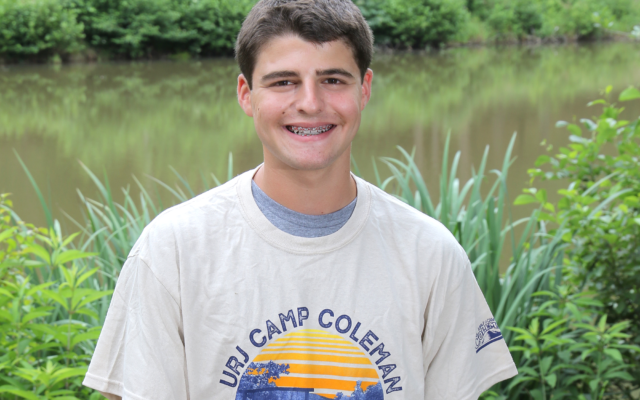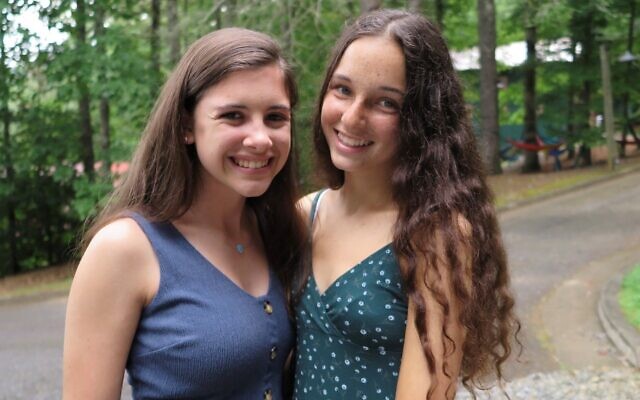Helping Fund Pre-College Israel Trips
A $20 million gift from The Marcus Foundation will help lower the cost for young adults to visit Israel before college.

Two Atlanta organizations with Judaism at their core are part of a pilot initiative to lower the cost for high school students to visit Israel next summer before they head to college. The Marcus Foundation, whose chairman is Home Depot co-founder Bernie Marcus, provided $20 million in seed money for The Jewish Education Project to lead the Israel teen travel program.
The funding will help teens travel to Israel each summer with major subsidies of $3,000 each. As a result, if the least expensive Israel trip is $2,500, The Jewish Education Project hopes to increase the number of teens traveling to Israel by nearly 40 percent each year.
JumpSpark Atlanta, which provides teen engagement programs, is helping recruit teens for the initiative locally in the hopes of expanding the outreach nationally.
The Marcus Foundation and JumpSpark support the initiative dubbed RootOne, which takes its name from the highway connecting Ben Gurion International Airport in Tel Aviv, where visitors arrive, to Jerusalem and the rest of their Israel experience. The name also expresses the program’s “desire to link all teens to their Jewish heritage and give youth a forward direction and connection to their common destiny,” said David Bryfman, CEO of The Jewish Education Project, which empowers and inspires Jewish educators, including those involved in Israel education and teen engagement.
“We believe more teenagers should go to Israel before they get to college” so they are “more proud of their Jewishness, more connected to Israel and able to stand up on colleges campus when they need to,” he said.
Marcus said of the program he supported, “Kids heading to college need to be more prepared today than ever. Anti-Israel groups have a very loud voice and presence on campus, and the vast majority of professors and administrators actively stand with and support these groups, their activities and their speakers.
“Our children who are attending university need to be equipped with knowledge, facts and truth about Israel so that they can spot the lies and propaganda and have the ability to counter these assaults and false narratives,” he said.
Among teens who are taking advantage of the RootOne subsidy to visit Israel for the first time are Stella Mackler, a junior at Grady High School, and Jaron Pearson, a sophomore at Johns Creek High School. Both are traveling with their camps; Mackler with Camp Ramah Darom’s Israel Seminar, and Pearson with the URJ Camp Coleman Israel trip.
Pearson said he wanted to go to Israel “to expand my view of the world since I have not traveled many places internationally. I want to learn more about my Jewish heritage through firsthand experiences with the culture, language and people, and third, I cannot wait to taste all the food.”
He said he didn’t think his family would have been able to afford for him to go on the trip without the subsidy. “When registration opened, my family was one of the first to sign up to secure the funding.”
Pearson is “most looking forward to floating in the Dead Sea, climbing Masada and visiting the Western Wall. I am very excited to share these experiences and make memories with my friends.”

Mackler said not having camp this summer because of the pandemic inspired her to go on the Ramah Israel Seminar, typically attended by rising seniors. Otherwise she might have waited to attend, she said. But without camp, the trip offered an opportunity “so we can see our camp friends again.”
Unlike Birthright Israel, which takes students 18 and up on a subsidized 10-day excursion to Israel, RootOne trips are for rising high school sophomores, juniors, seniors and recent graduates, and are at least double the length of the Birthright trip (at least 20 days) with greater engagement before and after the experience to improve Jewish continuity.
Marcus reiterated that “this program does not compete with Birthright. I still support Birthright. This program comes at a very important time for our children as they head to the hostile environments at institutions of higher education.”
The RootOne program actually began last year with five partner youth groups: the pluralistic BBYO, Union of Reform Judaism/NFTY, Orthodox NCSY, United Synagogue Youth and Ramah Israel, both Conservative. But the 2020 trips were cancelled because of the worldwide pandemic, which allowed more time to plan for next summer’s trips, Bryfman said. The announcement of the $3,000 subsidies came at a time that offered hope and optimism to those not able to go to Israel this year, he said.
Slots are available for 5,000 teenagers in 2021 to take advantage of the subsidies with close to half of the slots already allocated after three weeks of registration, Bryfman said.
“This is a long-term initiative,” he added. “Every teenager has the right and privilege to go to Israel.”
Simon Amiel, director of RootOne for The Jewish Education Project, said the primary goal of the initiative is to offer a high-quality and immersive 20-day Israel experience, but also preparation beforehand and engagement after travelers return. “We want to ensure the inspiration and information and connection they receive in Israel carries through to when they step on campus,” he said.
“The partnership with the youth service organizations is strategic, providing teens with opportunities for informed, educational and active ways to learn about and engage with Israel and how it plays out in their lives, and to inspire others to do the same.”
The money from the Marcus Foundation shows a commitment to elevate Jewish education and engage teens across the country and maximize the ability to get more people to Israel as rapidly and effectively as possibly, Bryfman said.
RootOne also began by working with three Jewish communities: Houston, Denver and Atlanta. The latter is organizing trips through the youth groups, and the other cities are leading community-based trips, Bryfman explained.
JumpSpark began expanding its mission to include teen Israel travel several months ago. For the RootOne trips, the teen engagement organization is creating a pipeline to bring those at the fringe into youth service organizations and their trips.
In addition to its RootOne involvement, JumpSpark began offering scholarships this year to encourage teens to take gap years in Israel. The $1,000 scholarships allow 29 teens to spend a semester or year in Israel. The teens are participating in 14 different Israel programs. Eight are high school, and 21 are participating in a gap year between high school and college.
Kelly Cohen, JumpSpark director, said the RootOne initiative was “very exciting. We hope it creates real change in the number of teens going to Israel” and remaining in the Jewish “ecosystem. … This is a game-changer when it comes to Israel travel,” she said.
“Teen Israel travel is the most powerful tool Jewish educators [and teen engagement groups] have in their toolbox. It’s one of the key events that shapes Jewish identity and Jewish involvement.”
She said JumpSpark’s new attention to teen Israel travel is forcing the organization to “think creatively and innovatively how to increase teen Israel travel. Increasing teen engagement has always been part of our mission. … This is another manifestation of our mission.”
Shifting back the focus of subsidized Israel trips from students already in college to before they enter college should expand the “arc of engagement,” she said. Students returning from Israel trips tend to be excited to participate in other Jewish experiences, so the challenge of Jewish groups is to capitalize on that by developing Jewish programming, Cohen said.
For more information about RootOne trips, visit www.rootone.org/.
- Jewish Education Project
- The Marcus Foundation
- Israel
- JumpSpark
- RootOne
- Ben Gurion International Airport
- Jerusalem
- David Bryfman
- Anti-Israel
- Stella Mackler
- Grady High School
- Jaron Pearson
- John's Creek High School
- Camp Ramah Darom
- Camp Coleman
- dead sea
- Masada Simon Amiel
- Kelly Cohen
- Roni Robbins
- college



comments